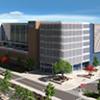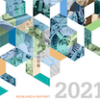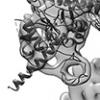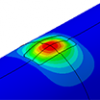The conference also featured poster presentations and flash talks that highlighted new research findings from around the state of Ohio.
Press Releases
Primary tabs
The Ohio Supercomputer Center (OSC) will collaborate on a five-year, $10 million National Science Foundation-funded initiative, led by the University of Colorado Boulder, to reimagine cyberinfrastructure user support services and delivery to keep pace with the evolving needs of academic scientific researchers.
The Ohio Supercomputer Center (OSC) will launch Ascend, a new Dell Technologies-based high performance computing cluster with advanced NVIDIA graphics processing units (GPUs) to support artificial intelligence (AI), machine learning, big data and data analytics work in fall 2022.
Intel’s planned $20 billion investment presents new opportunities for the Ohio Supercomputer Center (OSC) to close the manufacturing skills gap in the state.
The publication spotlights news from OSC and highlights the research and education enabled by Ohio’s statewide high performance computing resource.
Luiz Oliveira's undergraduate students use OSC's resources to explore the complex interactions of biomolecules and nanomaterials.
High performance computing enables Kent State students to render complex simulations more quickly, spending less time in the classroom waiting and more time learning.
Krishna Chinthalapudi's research into molecular motors requires the processing of large amounts of data. He and his team turn to the Ohio Supercomputer Center to turn days of computation into minutes.
The Ohio Supercomputer Center (OSC) and the Ohio Technology Consortium (OH-TECH) are saddened to learn of the passing of Charles Csuri, the "father of computer art." Chuck, as he was known, was a true pioneer with a remarkable talent for interdisciplinary work and a significant contributor to the creation and success of OSC and all that followed.









